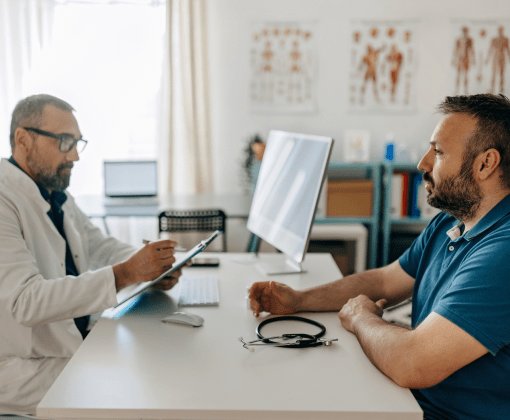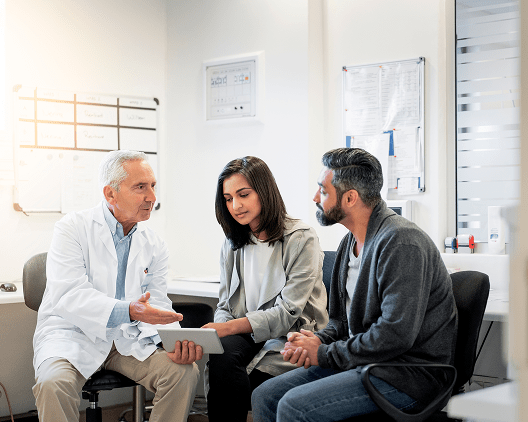IS THE COLOGUARD® TEST RIGHT FOR YOU?
Cologuard is for people 45+ and at average risk
Noninvasive, safe, and convenient, it is the colon cancer screening kit you can use at home. Collect a sample, send it back to our lab, and get results within two weeks.
Who is at average risk
As we age, our risk for colon cancer increases.1 You are considered at average risk if you:
- Are 45 or older
- Don’t have a personal or family history of colon cancer
- Haven’t had a positive result from past colon cancer screenings
- Don’t have a personal or family history of certain gastrointestinal conditions and cancers


Know the signs and symptoms
There are no obvious signs of early-stage colon cancer in many cases. This is why early detection is key. Major changes in bowel habits that go on for more than a few days could be one of them, and can include:
- Persistent diarrhea, constipation, or narrow stools
- Rectal bleeding or blood in the stool
- Abdominal discomfort (e.g., cramping, gas, or pain)
- Unexplained weight loss, fatigue, or weakness (often due to anemia)
- Low red blood cell count detected via blood work
These signs and symptoms are not exclusive to colon cancer and may be caused by other conditions. Screening with the Cologuard test can give you answers that you can share with your doctor to discuss next steps or treatment.
Why choose Cologuard

Screen every 3 years2
Unlike other noninvasive options that are used once a year, the American Cancer Society recommends screening every three years after a negative Cologuard result.
For over 10 years, over 340,000 health care providers3 have trusted Cologuard to screen 20 million patients.4
Ready to get started?
We can help you request your Cologuard test today from your health care provider or a telehealth specialist.

When Cologuard may not be right for you
It’s best to see a provider and seek other options if you:
- Are at high risk for colon cancer
- Have a personal history of colon cancer, adenomas, or other related cancers
- Had a positive result from another screening method in the last 6 months
- Were diagnosed with high-risk conditions such as inflammatory bowel disease (IBS), chronic ulcerative colitis, Crohn's disease, familial adenomatous polyposis (FAP) or a family history of colorectal cancer
